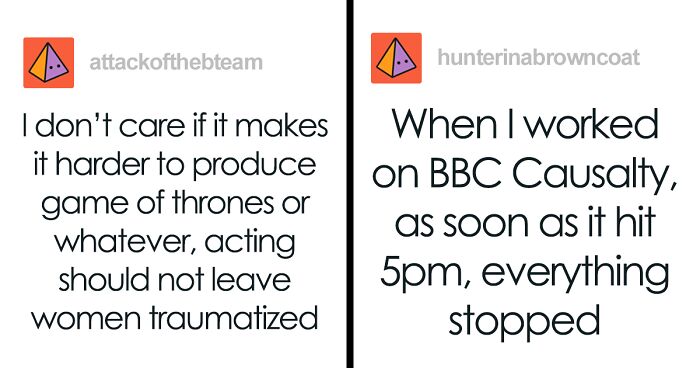
People Shed A Light On Terrible Film And Movie Crew Working Conditions That Make You Look At Hollywood Differently
I can’t imagine my life without movies or TV shows. Odds are, neither can you, dear Pandas. However, the glitz and glamor of the silver screen and the comfiness of our Netflix & chill sessions don’t always extend to the actual production. What lurks behind the scenes isn’t all sunshine and rainbows. Far from it.
A bunch of Tumblr users decided that it’s high time to talk about the film and TV industries and how they seriously need better labor laws. According to them, we should all be putting the welfare of the people working on the set above the quality of the actual project. From the actors to the crew without whom we’d have no blockbusters and no award-winning series.
Have a read through their discussion about the insanely long work hours, the constant exhaustion, and their effects on both people’s bodies and their minds. What do you think could be done to improve the situation, dear Pandas? Have you ever worked on a film set before? You can share your experiences there in the comment section if you’re feeling up to it.
Some people believe that actors and crew members working in the movie and TV industry need far better labor laws
Image credits: brandsandpeople (not the actual photo)
Overwork and exhaustion are rampant in the industry, according to them
Image credits: attackofthebteam
Image credits: attackofthebteam
Image credits: squeeful
Staff members working on animated movies can also fall prey to very long working hours
Image credits: alexazombie
Not all countries have this problem. For instance, in the UK, labor laws protect employees far better than elsewhere
Image credits: hunterinabrowncoat
Image credits: once-a-polecat
Image credits: thebyrchentwigges
Of course, labor laws depend on the country where you live and work. For instance, one Tumblr user pointed out that in the UK, labor laws are far stricter which means that overworking your staff happens far more rarely. Of course, that means that TV shows end up having fewer episodes as well, but the upsides are happier, healthier employees. And that’s easily a price that more employers the world over should be willing to pay for such a result.
Just because you’re pulling double or triple shifts and working 12 to 18 hours per day doesn’t mean that you’ll automatically be compensated well for your efforts. Don’t get me wrong, this isn’t to say that the entire movie industry is culpable, however, some directors and producers can take advantage of existing laws to save on employee wages.
This goes beyond just working on the movie sets, though. For instance, The Hollywood Reporter pointed out in January 2020 that low-level employees working at major cinema chains worked without overtime or holiday pay due to existing federal and state laws that hadn’t been changed in decades.
However, some states protect movie and TV show crew members as best they can (though some would argue that still isn’t enough). California, for example, mandates that anyone who doesn’t abide by the minimum wage or overtime laws will have to provide penalty payment. Movie Maker explains that for each day that the payment is withheld, the employer will have to pay an additional full day’s pay to the employee.
At the end of the day, better laws, clearly limiting how many hours of overtime can be worked and calling for better pay, would be the best way forward. However, such things take a lot of time to become reality. And far from everyone is interested in better labor laws. At the end of the day, it comes down to how much empathy your boss has for you. And if you matter to them more than efficiency. However, labor unions like the Screen Actors Guild could be a way for you to negotiate better working conditions.
Here’s how some social media users reacted when they read about the reality of working in the film and TV industries
This is more of a general worker's rights problem in Th US in my opinion. It shouldn't be legal to make someone work for 12 hours straight in ANY job. That inlcudes doctors and nurses.
I know someone who had a surgery that took 17 hours. They had a backup team if they needed to swap out any doctor or nurse because of exhaustion. However the way the delicate surgery worked, it was more dangerous to swap people out than the give caffeine and water to the staff over that long period. You cannot be rigid in medicine
Load More Replies...Of course the actors have a union - SAG or Screen Actors' Guild. The guild has kept actors' base wages decent and provides medical insurance, but do they do anything else? Anything about extreme hours or unsafe working conditions?
They have danger pay the like, but SAG doesnt care much for the mental health. The Riggers have a great union, they can only work 8 hours before 2.5x overtime pay, and get set breaks during the 8 hours. Its why most films have 2-3 crews of riggers, as it is cheaper than using one and paying the overtime. Some have good unions, some do not.
Load More Replies...Remember in Hollywood all the people from Actors to riggers all are Union. Aside from Catering, there are no jobs on set that are not Union Jobs. Lighting, Rigging, Set Building, Camera Crews, etc, their Unions are strict about hours, so they have extra crews for swaps. The other production crews dont have as good a Union, which is a problem, but one they should take out on their Union. Plus the actors are all Union. Focus on why the Unions on set dont do anything, that is the real thing to investigate.
This is more of a general worker's rights problem in Th US in my opinion. It shouldn't be legal to make someone work for 12 hours straight in ANY job. That inlcudes doctors and nurses.
I know someone who had a surgery that took 17 hours. They had a backup team if they needed to swap out any doctor or nurse because of exhaustion. However the way the delicate surgery worked, it was more dangerous to swap people out than the give caffeine and water to the staff over that long period. You cannot be rigid in medicine
Load More Replies...Of course the actors have a union - SAG or Screen Actors' Guild. The guild has kept actors' base wages decent and provides medical insurance, but do they do anything else? Anything about extreme hours or unsafe working conditions?
They have danger pay the like, but SAG doesnt care much for the mental health. The Riggers have a great union, they can only work 8 hours before 2.5x overtime pay, and get set breaks during the 8 hours. Its why most films have 2-3 crews of riggers, as it is cheaper than using one and paying the overtime. Some have good unions, some do not.
Load More Replies...Remember in Hollywood all the people from Actors to riggers all are Union. Aside from Catering, there are no jobs on set that are not Union Jobs. Lighting, Rigging, Set Building, Camera Crews, etc, their Unions are strict about hours, so they have extra crews for swaps. The other production crews dont have as good a Union, which is a problem, but one they should take out on their Union. Plus the actors are all Union. Focus on why the Unions on set dont do anything, that is the real thing to investigate.
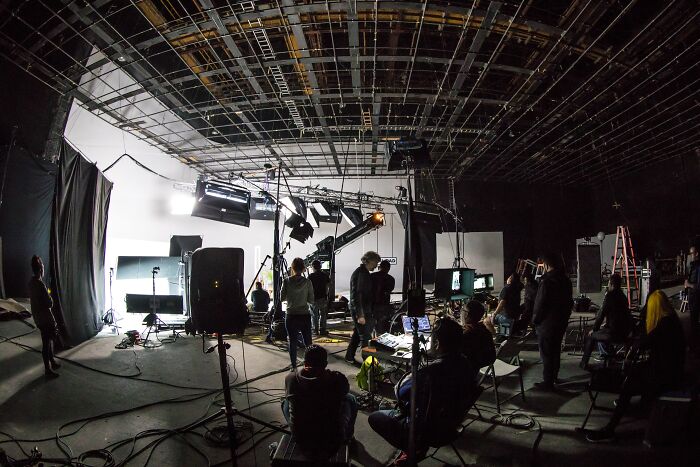


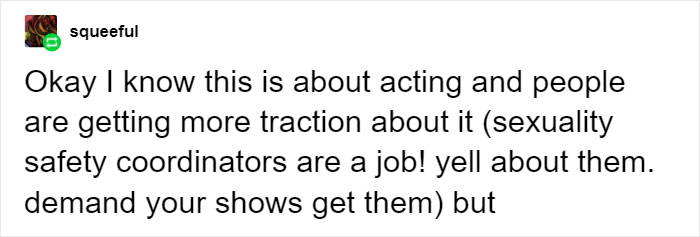

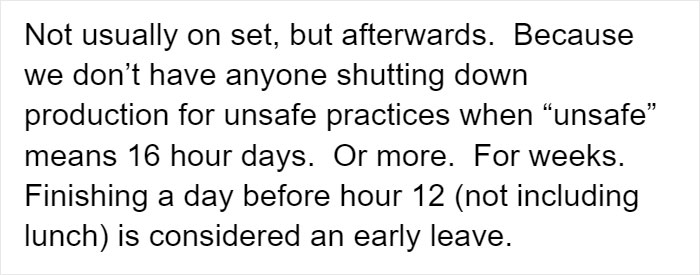
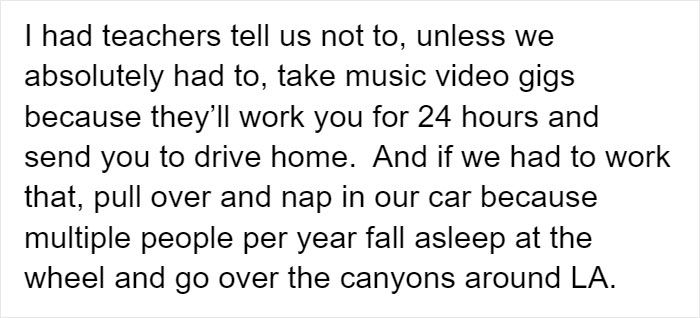
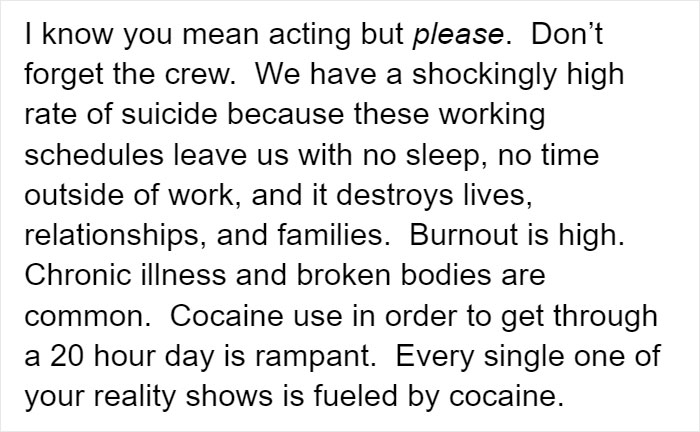
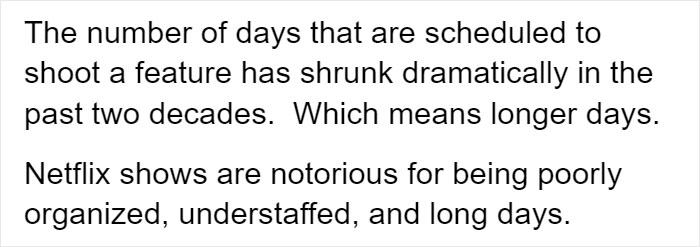
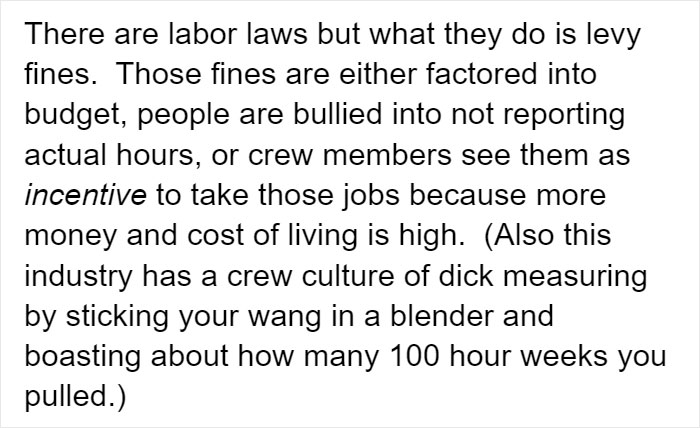
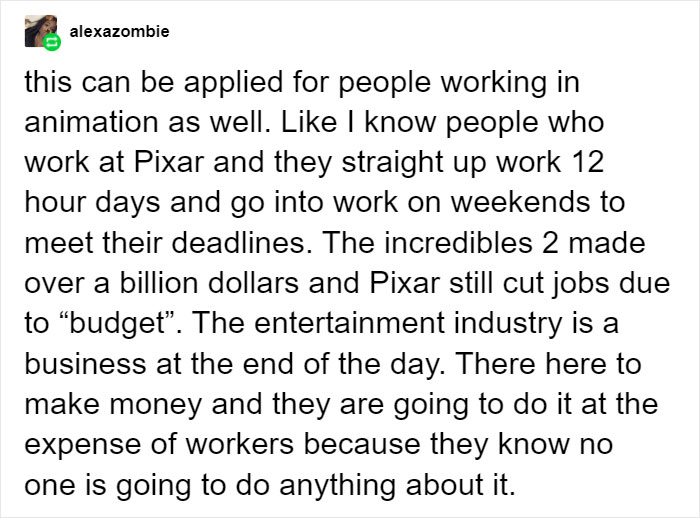
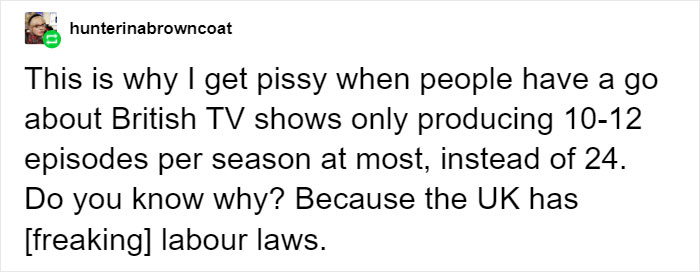
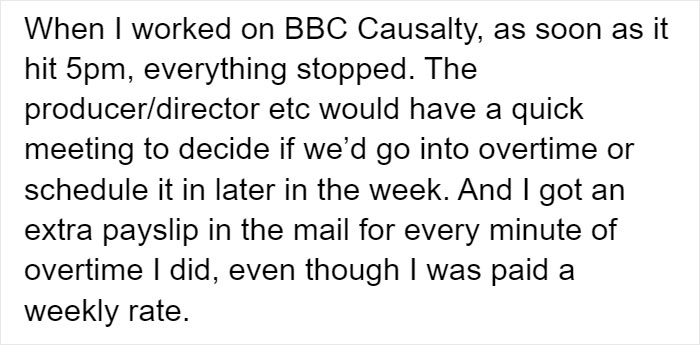

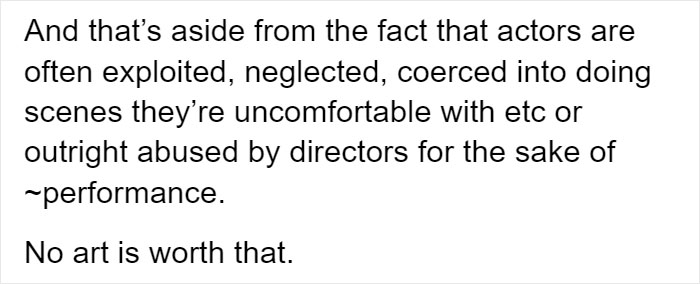

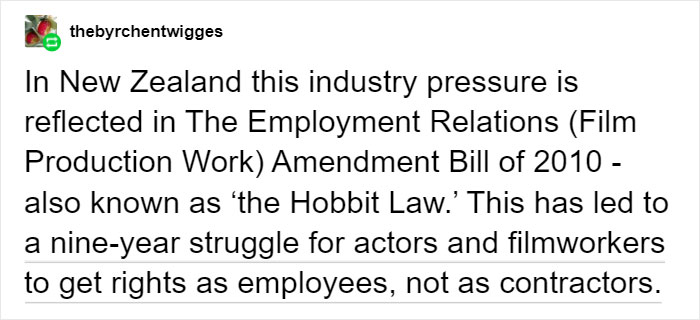
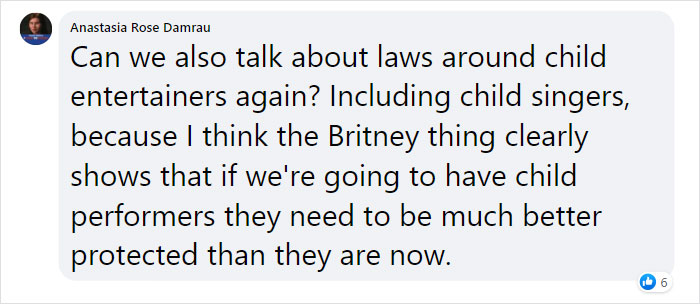


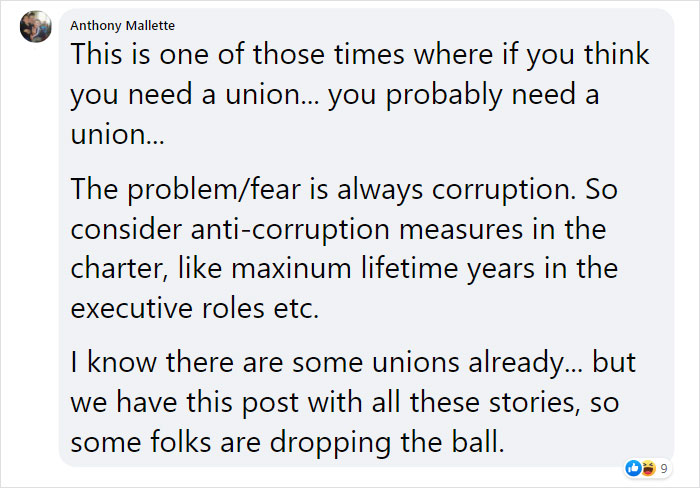

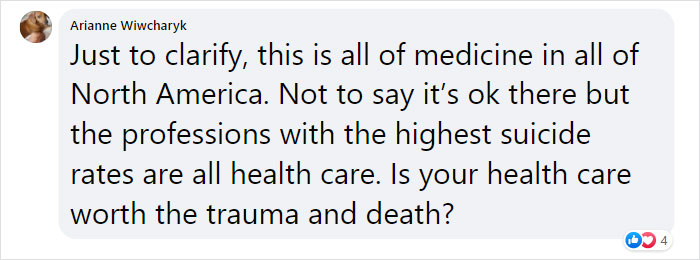

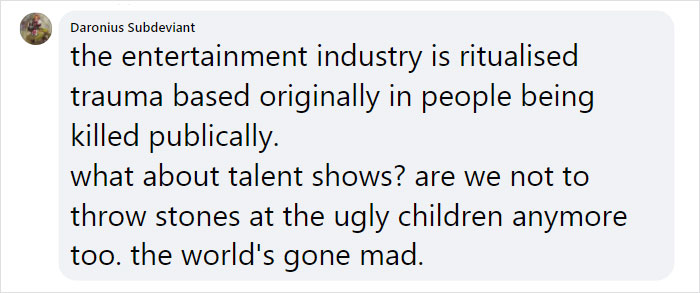




137
25